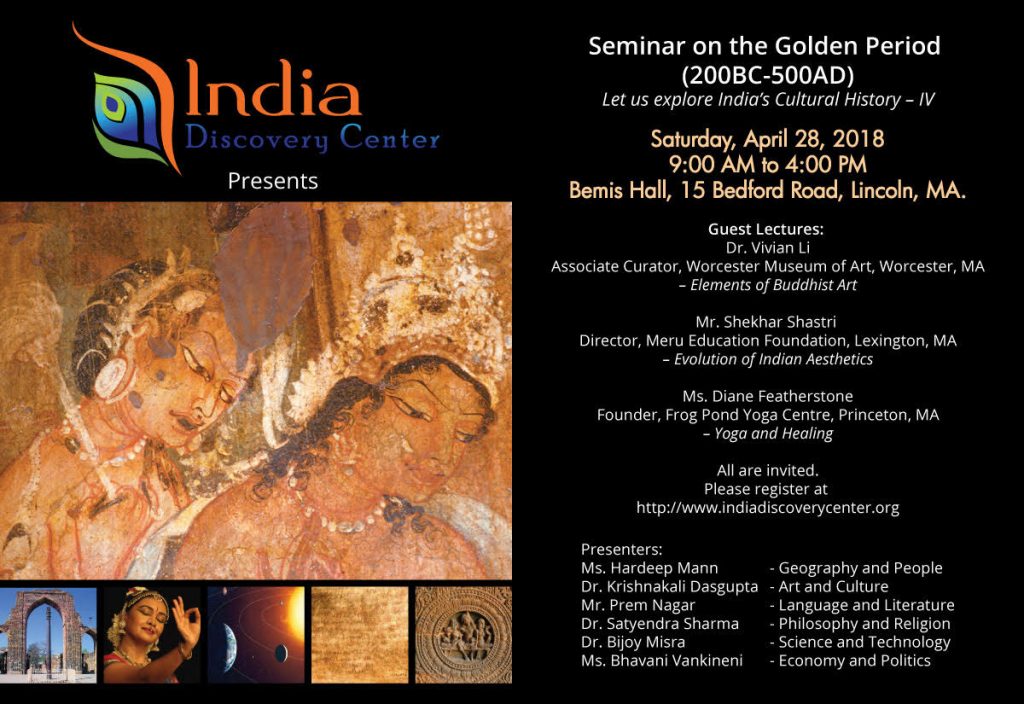Contribute
| Seminar On The Golden Period: 200BC-500AD |
Bijoy Misra
03/29/2018
We are pleased to announce our next seminar in the series "Let us explore the Cultural History of India." The fourth event entitled "Seminar on the Golden Period, 200BC-500AD" is scheduled on Saturday, April 28, 2018, from 9 AM to 4 PM at Bemis Hall in Lincoln,MA. The period is important not because of the overall prosperity in the land, but the manifold manifestation of the creative efforts in art, music, dance, language, literature, medicine, mathematics and astronomy. Indian Union was established and the administrative protocol conceived by statesman/scientist Kautilya helped create social integration the country. Philosophical theories championed freedom of speech and freedom of work. Buddhism preached social harmony while Jainism preached the concept of mutual respect. The role of each social group and that of the King to maintain a productive labor force was established and practiced. The grass-root resolution of social conflicts enabled people of various faiths and opinions to inhabit peacefully a village. The village developed into an self-sustained economic unit of the country. Thus, the period formed the foundation of India's political and economic system.
Authoritative scholars on grammar, prosody, music, heath science, medicine, mathematics and astronomy attracted students to the national universities from all around the world. Analysis of mind, speech and origin of life gave rise to the enunciation of empirical conduct in living. Path to mitigate grief and pain through restraint and yoga was discovered..Economic equality created social dignity which helped foster creativity and economic output. Religious rituals transformed into cultural celebrations including components of music, dance, drama and artistic exhibitions. Massive epics and the production of creative literature kept the intellectual atmosphere rich and dignified.
Caves, rockcut temples, monuments, statues and frescoes dotted the landscape. Urban planning led to civil engineering projects and the concept of aesthetics in living took root.
Proper conduct in dress, attire, makeup and headdress made the interaction dignified and sophisticated..Learning skills and proper professional training in academy and military were sponsored.Doctors were screened and there were medical centers in each village. Women
had a special role to maintain their health to help produce healthy children. The old and the infirm were cared for and respected. Invasions occurred and the invaders chose to integrate into the fabric of local cultural life. Important among the new entries were Jewish faith and Christianity.
We will analyze each of these topics in depth along with the boundary issues and internal military conflicts. There would be six tracks of presentations and three invited lectures. We include music and recitation of literature. Breakfast pastries, lunch and drinks would be provided.
We request a suggested donation of $20, but will appreciate your generosity to help sustain our efforts. All donations to India Discovery Center are tax-deductible in the US. Seating would be limited to a hundred attendees.
You may also access this article through our web-site http://www.lokvani.com/

